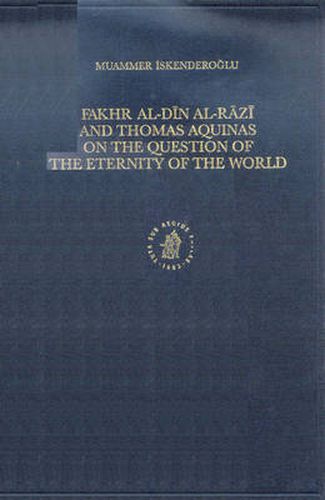Readings Newsletter
Become a Readings Member to make your shopping experience even easier.
Sign in or sign up for free!
You’re not far away from qualifying for FREE standard shipping within Australia
You’ve qualified for FREE standard shipping within Australia
The cart is loading…






This volume examines the approaches of Fakhr-al-Din al-Razi (d. 1209) and Thomas Aquinas (d. 1274) to the question of the eternity of the world, which was one of the most heated issues of debate between theologians and philosophers in the Middle Ages. The first chapter of the work gives some background to the discussion from Greek philosophy, early Judaeo-Christian and Muslim traditions. The second and the third chapters discuss the approaches of Razi and Aquinas respectively to the question of the eternity of the world. The last chapter compares their approaches, brings out some similarities of their approaches between them as well as in relation to their own traditions, Islam and Christianity respectively. The text tries to show that, though they were theologians, both Razi and Aquinas were more in line with the philosophers than their fellow theologians.
$9.00 standard shipping within Australia
FREE standard shipping within Australia for orders over $100.00
Express & International shipping calculated at checkout
This volume examines the approaches of Fakhr-al-Din al-Razi (d. 1209) and Thomas Aquinas (d. 1274) to the question of the eternity of the world, which was one of the most heated issues of debate between theologians and philosophers in the Middle Ages. The first chapter of the work gives some background to the discussion from Greek philosophy, early Judaeo-Christian and Muslim traditions. The second and the third chapters discuss the approaches of Razi and Aquinas respectively to the question of the eternity of the world. The last chapter compares their approaches, brings out some similarities of their approaches between them as well as in relation to their own traditions, Islam and Christianity respectively. The text tries to show that, though they were theologians, both Razi and Aquinas were more in line with the philosophers than their fellow theologians.